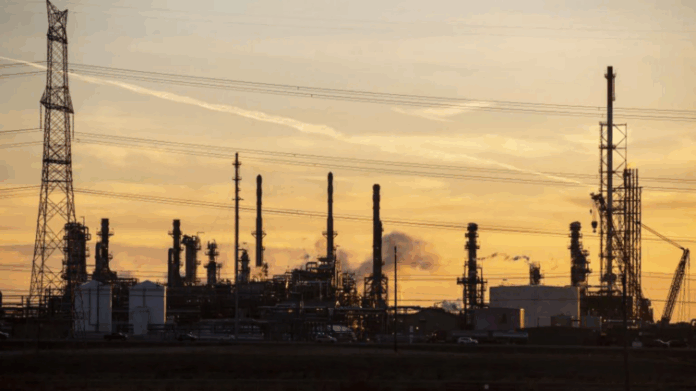Crude oil prices have started to retreat after spiking on Friday, when Israel launched airstrikes on Iran over its nuclear enrichment programme.
Initial fears of a broader regional conflict sent Brent crude soaring 7% to $74 a barrel. But markets have since reassessed the threat.
Prices have now eased slightly to $73, a sign that traders are betting against immediate escalation. The cedi, which slipped from GH¢10.25 to GH¢10.35 per dollar on Friday after Israel’s strike, also regained some ground, ending Monday at GH¢10.30.
That slight appreciation points to easing market anxiety. Gold, which surged to $3,432 on Friday as investors rushed to hedge against risk, also cooled, slipping to $3,395 on Monday.
That suggests investors are pulling back from safe-haven bets, for now.
Neither Iran’s key energy infrastructure for exports nor the Strait of Hormuz — a narrow shipping lane that handles 20% to 25% of global oil — has been seriously disrupted at the moment. Crude shipments passed through the Strait freely on Monday.
Fears that other oil producers in the region, such as Saudi Arabia, would be drawn into the conflict or come under attack have also not materialised.
Despite Tehran’s retaliatory drone launches, the worst-case scenarios that rattled markets appear to be off the table, at least temporarily.
However, given the continued uncertainty in the Middle East, oil tankers are reportedly charging higher risk premiums for shipments through the region.
That means oil prices are likely to remain slightly elevated, even without a major supply disruption, until the conflict clearly de-escalates.
OPEC+ production remains elevated. Some members are still pumping above their agreed quotas, while global oil demand in the second half of 2025 remains soft.
Supply-side abundance and muted consumption are combining to keep crude prices from climbing further.
This supports analysis by JoyNews Research over the weekend, which projected downward pressure barring a dramatic escalation.
Ghana is cautiously exhaling. Higher crude prices would have rippled across the economy, raising transport fares, pushing up food and imported inflation, and placing fresh pressure on the cedi.
See JoyNews Research’s breakdown on why Ghana is vulnerable to oil price shocks from the Israel–Iran conflict.
The Energy and Finance Ministries’ joint decision to suspend the proposed additional GH₵1 per litre fuel levy was timely as it shielded consumers from further volatility.
But this episode underscores just how exposed Ghana remains to global oil markets.
Despite repeated shocks in recent years, Ghana has failed to build meaningful buffers. Strategic reserves are nonexistent. According to a former BOST managing director, the levy that once funded such stockpiles was zeroed out in 2006.
No major effort has since been made to rebuild inventories. Refineries like the Tema Oil Refinery (TOR) remain underutilised, and crude oil output has declined for five consecutive years.
This near-miss should serve as a wake-up call. Ghana must treat energy security as a structural priority. Stockpiling petroleum products when oil prices are low, ramping up local crude oil production, and restoring oil refinery capacity are urgent.
Until then, the country remains one headline away from another fuel price shock.
Crude prices may be falling back to pre-Israel–Iran war levels. However, as long as the conflict continues, Ghana is not out of the woods.
Oil markets seem calm for now. But with no buffers in place, Ghana remains one geopolitical shock away from renewed volatility.
ALSO READ:



